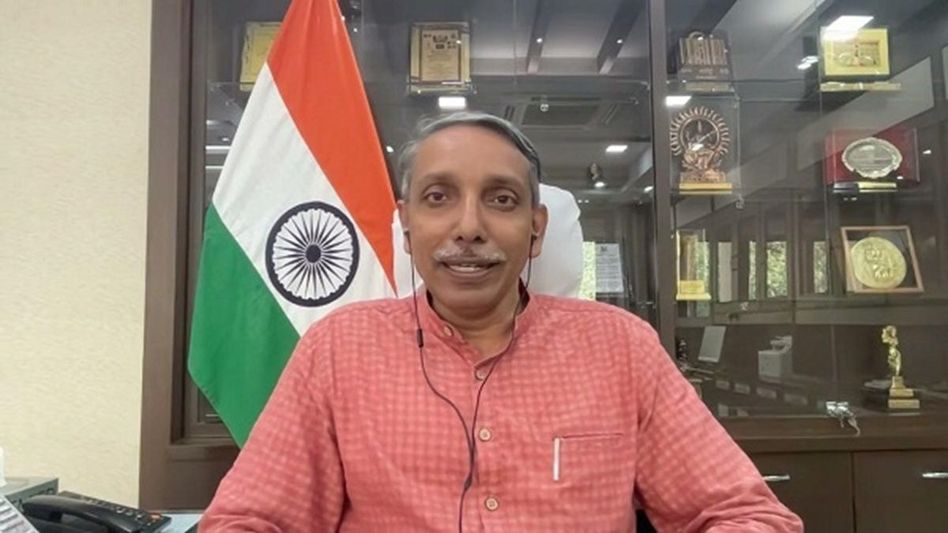UGC reveals draft rules for Recognition of Prior Learning, focus on equitable education
The University Grants Commission (UGC) has released draft guidelines for Recognition of Prior Learning (RPL), aimed at advancing equitable education and workforce development.

The University Grants Commission (UGC) has released draft guidelines for Recognition of Prior Learning (RPL), aimed at advancing equitable education and workforce development.
Approved during the Commission's meeting on November 14, 2024, these guidelines seek to create pathways for individuals to gain formal recognition for skills acquired through informal, non-formal, or experiential learning.
M. Jagadesh Kumar, Chairman, UGC, highlighted the importance of RPL in aligning with the National Education Policy (NEP) 2020. He stated: "We must address the challenges faced by India's large informal workforce, which requires formal education and career progression opportunities. Recognition of Prior Learning (RPL) is integral to the vision of The National Education Policy (NEP) 2020. RPL allows individuals to gain formal recognition for skills and competencies acquired through informal, non-formal, or experiential learning. Through RPL, such individuals can access higher education, earn formal qualifications, and improve their employability.”
"The National Credit Framework (NCrF) supports RPL by facilitating the creditization of all learning forms—academic, vocational, and experiential. To enable individuals to convert their skills into qualifications, RPL helps bridge the gap between real-world experience and formal education and enhance career prospects. RPL contributes to economic growth, social inclusion, and a more skilled workforce. In its meeting on 14th November 2024, the commission approved the draft guidelines for implementing RPL by specifying several mechanisms. The guidelines also emphasize robust governance, quality assurance, and collaboration among policymakers, educational institutions, employers, and assessment bodies to ensure fairness, consistency, and inclusivity while implementing RPL. This UGC's initiative aligns with NEP 2020's goal of promoting a holistic and equitable education system," Prof Kumar added.
Also Read: UGC proposes draft regulations to transform higher education
RPL acknowledges that education is not confined to traditional classrooms, recognizing the value of skills acquired through diverse avenues such as on-the-job training, volunteer work, and life experiences. The recently proposed draft guidelines seek to formalize these competencies through a structured assessment process, enabling individuals to earn academic credits and qualifications.
Globally, hiring trends are shifting, with employers placing greater emphasis on practical skills over formal degrees. RPL aligns with this shift, offering individuals a way to validate and build upon their informal learning. For example, an artist with years of independent practice can leverage RPL to gain entry into formal art programs and accelerate their educational journey.
The importance of RPL is particularly significant in the Indian context. With over 90% of the workforce operating in the informal sector—contributing substantially to the nation’s GDP—many individuals face barriers to higher education due to a lack of formal qualifications. RPL addresses this gap by providing structured pathways to education and career advancement.
The National Education Policy (NEP) 2020 emphasizes lifelong learning and inclusivity, identifying RPL as a critical tool to meet these goals. By validating and crediting experiential learning, RPL enhances employability and builds a more skilled workforce.
The draft guidelines for RPL propose a robust governance framework to ensure quality and inclusivity. Collaboration between policymakers, academic institutions, employers, and assessment bodies is central to the initiative. The framework integrates with the National Credit Framework (NCrF), which facilitates the "creditization" of academic, vocational, and experiential learning.
The Academic Bank of Credits (ABC), a cornerstone of NEP 2020, supports this ecosystem by allowing individuals to store and retrieve credits across institutions. This ensures that diverse learning experiences are recognized and can be applied toward higher education or career development.
RPL represents a transformative approach to education, bridging the gap between traditional and experiential learning. For India, it holds the potential to significantly improve the Gross Enrolment Ratio (GER) in higher education, contributing to national economic and social growth.
The University Grants Commission (UGC) has invited public feedback on the draft guidelines, reaffirming its commitment to an inclusive and participatory policy-making process. This initiative is a critical step towards building a more flexible, inclusive, and learner-centric education system in India.
Copyright©2025 Living Media India Limited. For reprint rights: Syndications Today









